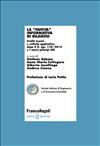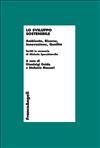
Introduction: The article, multidimensional and multi-media in scope and sources, represents, from an accounting history perspective, the social, economic and polit-ical events influencing opera theatre and the opera tenor Tito Schipa. Aim of the work: The study presents a social and cultural real accounting-based story, linking accounting, patronage, politics, artistry and heritage, referring to ac-countability in both financial and non-financial terms. Methodological approach: The article uses a qualitative research method explor-ing, from both primary and secondary data, the epiphanies having a significant im-pact on Tito Schipa’s personal and professional life. Main findings: The work develops and applies a framework of accountability in the context of opera theatre considering the influences of patronage and Fascism, and represents an example of the effects of economic and political changes on artists and of the relations of power within which accounting is embedded. Originality: The research adopts an exploratory and creative multi-media approach in using oral/aural, financial and private archive sources and it explores the Tito Schipa’s life and career, largely unknown, and the related ‘accounting’ information.

